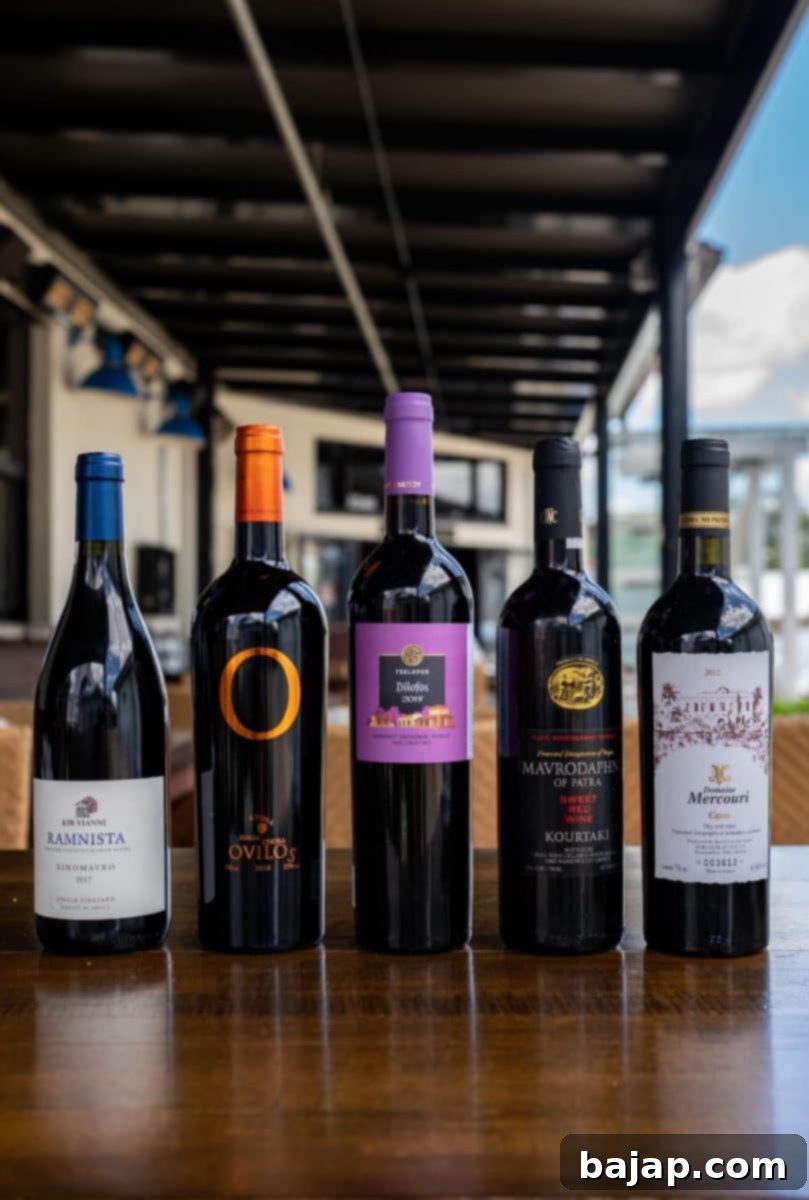The Ultimate Guide to Vegan Alcohol: Discovering Animal-Free Wines, Beers, Ciders, and Spirits
For many, the idea that their favorite alcoholic beverage might not be vegan comes as a genuine surprise. After all, alcohol is typically made from fermented grains, fruits, or sugars, seemingly straightforward plant-based ingredients. So, how can something so naturally derived end up containing animal products?

The answer lies not in the initial fermentation, but often in the subsequent processing: specifically, during the aging, clarification, and filtration stages of beer, cider, wine, and even some spirits. Traditionally, various animal-derived products, known as ‘fining agents,’ have been used to achieve a clear, brilliant liquid and remove impurities. These can include substances like gelatin, isinglass, casein, and albumin—all direct animal derivatives.
The good news is that the landscape for vegan alcohol is rapidly changing. As consumer awareness grows and demand for plant-based options increases, many alcohol companies are making a significant shift towards vegan-friendly production methods. This means it’s now easier than ever to enjoy a diverse range of drinks that align perfectly with your dietary needs and ethical principles.
A delightful guest post by Clara Jones.
[feast_advanced_jump_to]
Fining and Filtration: Understanding the Non-Vegan Culprits
To truly understand why some alcoholic beverages aren’t vegan, it’s essential to delve into the processes of fining and filtration. These steps are crucial for many producers to achieve the desired clarity, stability, and sometimes even flavor profile of their finished product. While not all fining agents are animal-derived, many traditional ones are:
- Isinglass: Perhaps one of the most surprising ingredients, isinglass is a collagen derived from the dried swim bladders of fish. It’s primarily used to clarify beer and wine by attracting yeast and other suspended particles, causing them to settle at the bottom more quickly. While the fining agent itself is typically filtered out, microscopic traces can remain, and the very use of an animal product is a concern for vegans.
- Gelatin: A common protein obtained from animal bones, skin, and connective tissues, gelatin is widely used in winemaking and cider production. Similar to isinglass, it helps to remove tannins, color, and other undesirable compounds, leading to a clearer beverage.
- Casein: This milk protein is often used in white wines to clarify and remove phenolic compounds that can cause bitterness or browning. As a dairy product, it makes wine unsuitable for vegans.
- Albumin: Derived from egg whites, albumin is another traditional fining agent, particularly popular for red wines. It’s used to soften tannins and clarify the wine, leaving a smoother finish.
- Chitin: While less common than the others, chitin, sourced from the shells of crustaceans, can also be used as a fining agent in some alcoholic beverages.
The primary motivation for using these agents is efficiency and aesthetics. They speed up the clarification process, which would otherwise take longer through natural settling, and ensure a visually appealing, crystal-clear drink. For vegans, the issue isn’t just about consuming these agents directly (as they are largely removed), but rather the ethical implication of their use in the production process and the potential for trace amounts to remain.
Spirits: Generally Vegan-Friendly with Exceptions
When it comes to spirits, vegans generally have an easier time finding suitable options. The distillation process, which separates alcohol from fermented mixtures, typically leaves behind any solid particles or fining agents. This makes most unflavored, pure spirits inherently vegan.
Vodka, gin, most whiskeys, and rums are usually safe bets. These spirits are predominantly made by fermenting sugars or grains and then distilling the liquid to remove excess water and impurities. This process often negates the need for the types of fining agents used in wine or beer.
However, there are crucial exceptions to watch out for:
- Flavored Spirits: Always exercise caution with flavored spirits. Some may use honey for sweetness (e.g., honey-flavored whiskey or liqueurs), which is not vegan. Others might contain dairy (e.g., cream liqueurs like Baileys) or other animal-derived flavorings or colorings. When in doubt, opt for a clear, unflavored spirit or seek out brands specifically labeled as vegan, perhaps favoring a delightful vanilla flavoring from a trusted vegan brand.
- Mezcal: While most tequilas (made from agave) are perfectly suitable for vegans, there’s a common myth about the “tequila worm” that often gets debunked. However, its cousin, Mezcal, is another story. Some bottles of Mezcal, particularly those produced in Oaxaca, do indeed include a moth larva (often referred to as a “worm”) that lives on the agave plant. This addition is usually for marketing or perceived tradition, but it clearly makes these specific Mezcal varieties non-vegan. Always double-check the label or opt for a Mezcal that explicitly states it’s worm-free.
- Other Niche Spirits: Be aware of any unusual or artisan spirits that might incorporate animal products for unique textures or flavors, such as those made with animal fats or broths (though these are rare in commercial production).
In general, if a spirit is clear and unflavored, it’s highly likely to be vegan. But a quick check of the ingredient list for any added flavorings or colorings is always a good practice.
Beers and Ciders: Navigating a Diverse Landscape

The world of beer and cider can be a bit more complex for vegans due to varied production methods. Traditional fining agents are more prevalent here, but a significant shift is occurring.
Beers
- Cask Ales and Traditional British Beers: As a vegan, it’s best to approach cask ales and many traditional British beers with caution. These are frequently produced using isinglass, derived from fish bladders. Brewers utilize isinglass to accelerate the clarification process, removing yeast and other particulates to achieve a clear beer more quickly. While effective, this makes the final product non-vegan.
- German Beers and the Reinheitsgebot: German beers are generally an excellent choice for vegans. For centuries, German brewers have adhered to the Reinheitsgebot, or German Beer Purity Law, which dictates that beer can only be made from water, barley, hops, and yeast. This strict regulation inherently excludes animal-derived fining agents, making most German beers naturally vegan-friendly.
- Guinness’s Vegan Transition: A notable success story in the vegan beer world is Guinness. For a long time, this iconic stout was not vegan due to its use of isinglass. However, following extensive consumer campaigns, Guinness successfully transitioned to a vegan-friendly filtration process a few years ago, making it a proud option for vegans worldwide. This change demonstrates how consumer demand can drive significant ethical shifts in the industry.
- Modern Brewing and Vegan Fining: Many contemporary breweries, especially craft breweries, are adopting vegan-friendly methods. They either allow extra time for the yeast to settle naturally (which many argue also contributes to a richer flavor profile) or use alternative fining agents like Irish moss (a type of seaweed, though often more for clarifying the wort before fermentation, or synthetic agents like PVPP or bentonite clay for post-fermentation fining) or advanced filtration systems.
Ciders
Ciders, like some beers and wines, can also pose a challenge due to the use of gelatin for clarification or sometimes even flavor stabilization. Again, this animal-derived product helps achieve a clear liquid, which is often preferred by consumers.
- Traditional and Cloudy Ciders: If you want to be certain you’re selecting a vegan-friendly cider, look for traditional scrumpy ciders or any cloudy cider. These are typically naturally fermented and often embrace a less processed, more rustic character, meaning they are less likely to employ animal products for fining. Their inherent cloudiness signifies that they haven’t been aggressively fined for crystal clarity.
- Modern and Mass-Produced Ciders: For mass-produced or highly refined ciders, checking labels or consulting online vegan alcohol databases is crucial. Many brands are now proudly labeling their ciders as vegan, making the choice much simpler.
Wines: A Journey Towards Clarity and Ethics

Historically, a significant portion of wines has not been vegan-friendly due to the prevalent use of animal products during the fining and filtration processes. Winemakers employ these agents to achieve a clear, brilliant liquid finish, stabilize the wine, and sometimes even adjust its texture or taste profile. Common non-vegan fining agents include:
- Albumin from egg whites (often used for red wines).
- Casein from milk protein (frequently used for white wines).
- Gelatin from animal collagen.
- Isinglass from fish bladders.
While these products are generally removed from the finished wine, minute trace amounts can remain. More importantly, for many vegans, the ethical concern lies in the very use of animal products at any stage of production, regardless of whether they are consumed in the final product.
Fortunately, the wine industry is undergoing a significant transformation. Driven by increasing consumer demand for transparent and ethical products, more and more winemakers are embracing vegan-friendly practices. This shift involves several approaches:
- Alternative Fining Agents: Winemakers are increasingly utilizing plant-based or mineral-based fining agents. These include bentonite clay (a naturally occurring mineral), activated charcoal, pea protein, potato protein, and synthetic compounds like PVPP (polyvinylpolypyrrolidone). These alternatives achieve similar clarifying and stabilizing results without using animal derivatives.
- Unfined/Unfiltered Wines: Some winemakers opt to produce “unfined” or “unfiltered” wines, allowing the natural sedimentation process to clarify the wine over time. This approach, often favored by natural wine producers, results in wines that might have a slight haze but are typically vegan, as no fining agents (animal or otherwise) are used.
- Improved Filtration Technologies: Advanced filtration systems can also achieve clarity without the need for traditional fining agents.
These days, finding vegan wines is much easier. Many winemakers are clearly labeling their bottles as “vegan” or using symbols indicating their vegan status, thanks to certifications from organizations like The Vegan Society. You’ll find a wide array of vegan wines—including robust reds, crisp whites, delicate blush wines, and celebratory sparkling varieties—from top wineries around the world.
How to Confirm Your Alcohol is Vegan
Navigating the world of vegan alcohol can sometimes feel like a puzzle, but with the right tools and information, it becomes straightforward. Here’s how you can confidently choose vegan-friendly beverages:
1. Read the Label Meticulously
This is your first and most important step. Many brands are now explicitly labeling their products as “vegan” or displaying a vegan certification logo. Look for terms like “unfined,” “unfiltered,” or lists of ingredients that clearly exclude animal-derived fining agents. If an ingredient list is present (which is more common for wines and ciders than spirits), scan for casein, albumin, gelatin, isinglass, honey, or any other animal products.
2. Utilize Online Vegan Alcohol Databases and Apps
The vegan community has created invaluable resources. Websites like Barnivore.com are comprehensive databases that list thousands of alcoholic beverages and their vegan status, based on direct communication with manufacturers. There are also apps available that provide similar information, making it easy to check on the go. These resources are updated regularly and are often the most reliable way to verify a product’s vegan status.
3. Ask the Experts
Don’t hesitate to ask. Any properly qualified bartender, sommelier, or staff member at a brewery or winery should be knowledgeable about their products’ ingredients and production methods. Be specific with your questions: “Is this wine fined with egg whites or milk products?” or “Does this beer use isinglass?” Their expertise can guide you to a safe and enjoyable choice.
4. Contact the Manufacturer Directly
If you’re still unsure after checking labels and databases, reaching out directly to the manufacturer is a reliable option. Most companies have customer service lines or email addresses where they can provide detailed information about their products’ ingredients and processing. This is particularly useful for newer or less common brands.
The Broader Impact of Choosing Vegan Alcohol
Beyond personal dietary choices, opting for vegan alcohol has a ripple effect that contributes to a larger positive impact:
- Ethical Considerations: For many vegans, the primary motivation is ethical. Choosing animal-free alcohol ensures that no animals were exploited or harmed during the production process, aligning beverage choices with a compassionate lifestyle.
- Environmental Benefits: Reducing demand for animal products, even by-products like those used in fining, supports a more sustainable food system. Animal agriculture has a significant environmental footprint, and every decision to choose plant-based alternatives helps to lessen this impact.
- Driving Industry Change: Consumer demand is a powerful force. As more people seek out and purchase vegan-certified or vegan-friendly alcohol, it signals to manufacturers that there is a growing market for these products. This encourages more breweries, wineries, and distilleries to adopt ethical, plant-based production methods, expanding choices for everyone.
- Promoting Transparency: The demand for vegan alcohol also pushes brands towards greater transparency in their labeling and ingredient disclosure, benefiting all consumers by providing clearer information about what they are consuming.
In conclusion, while the idea of non-vegan alcohol can be surprising, the good news is that the market is rapidly evolving. With a little awareness and the right resources, enjoying a delicious, animal-free drink that aligns with your values is easier and more accessible than ever before. Cheers to conscious sipping!
🤎 You might also like
- Peach Melba with Raspberry Liqueur Berry Sauce
- National Food Holidays – September
- Peach Moscow Mule with Homemade Peach Purée
- Austrian Zirben Spritzer – White Wine Spritzer with Pine Liqueur
⛑️ Food Safety
- Cook to a minimum temperature of 165 °F (74 °C)
- Do not use the same utensils on cooked food, that previously touched raw meat
- Wash hands after touching raw meat
- Don’t leave food sitting out at room temperature for extended periods
- Never leave cooking food unattended
- Use oils with high smoking point to avoid harmful compounds
- Always have good ventilation when using a gas stove
For further information, check Safe Food Handling – FDA.
